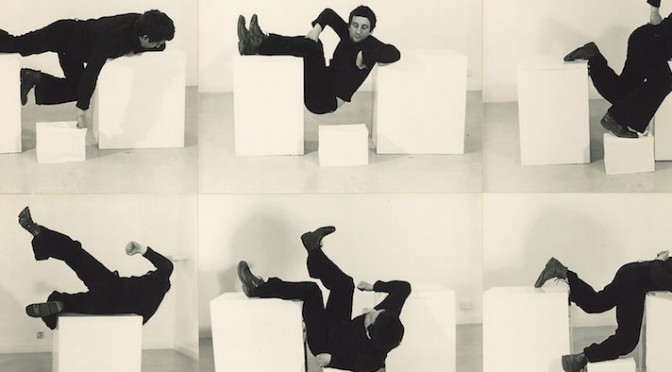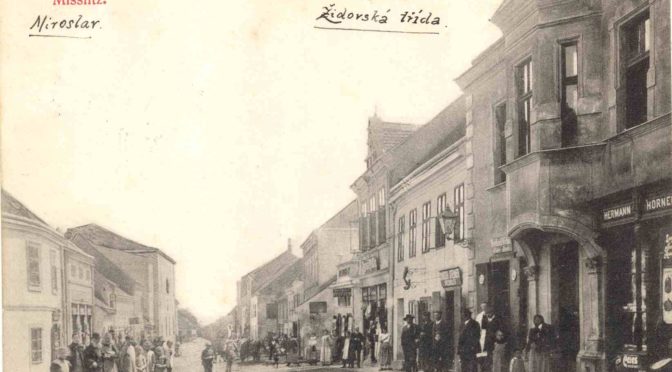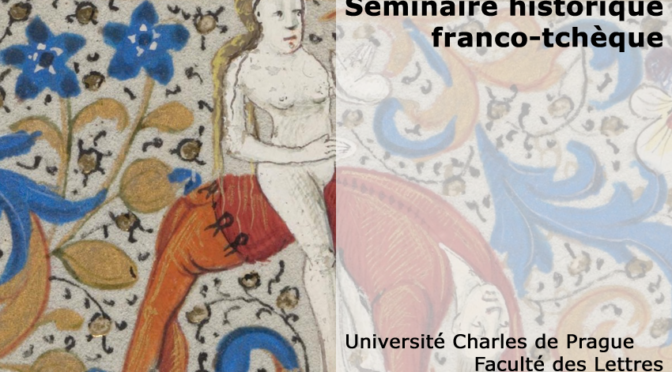
Desatý setkání zimního semestru Epistemologického semináře organizovaného CEFRESem (Jérôme Heurtaux) a Institutem mezinárodních studií FSV UK (Tomáš Weiss a Mitchell Young) povede
Tereza Sedláčková (FSV UK, přidružená k CEFRESu)
Téma: Multiplicita těla
Kde: Seminář bude probíhat online. Přihlašte se na adrese: adela.landova@cefres.cz.
Kdy: 29. duben 2020 od 16:30 do 18:00
Jazyk: angličtina
Texty:
- Annemarie Mol: The Body Multiple. Ontology in Medical Practice. Duke University Press 2002. Chapter 1.
Přednášku povede Jérôme Heurtaux (CEFRES) v rámci česko-francouzského semináře organizovaného Ústavem pro české dějiny Filozofické fakulty Karlovy Univerzity.
Přihlašte se na seminář zde: adela.landova@cefres.cz.
Kdy: 23. dubna 2020 od 9:10
Kde: Online
Jazyk: francouzština

Deváté setkání zimního semestru Epistemologického semináře organizovaného CEFRESem (Jérôme Heurtaux) a Institutem mezinárodních studií FSV UK (Tomáš Weiss a Mitchell Young) povede
Rose Smith (FSV UK)
Téma: Kulturní Paměť
Kde: Seminář bude probíhat online. Přihlašte se na adrese: adela.landova@cefres.cz.
Kdy: 15. dubna 2020, od 16:30 do 18:00
Jazyk: angličtina
Text:
Jan Assmann and John Czaplicka : “Collective Memory and Cultural Identity”, New German Critique, No. 65, Cultural History/Cultural Studies (Spring – Summer,1995), pp. 125-133

Přednášku v rámci semináře o soudobých dějinách Židů organizovaného Masarykovým ústavem a Archivem Akademie věd České republiky ve spolupráci s Pražským centrem židovských studií a CEFRES přednese Justyna Majewska (Jewish Historical Institute, Varšava).
Místo: knihovna CEFRESu, Na Florenci 3, 110 00 Praha 1
Čas: 17:30-19:00
Jazyk: angličtina
Abstrakt
Židé uvěznění ve varšavském ghettu přemýšleli nejen o tom, jak přežít přítomnost, ale také nadcházející budoucnost. Den osvobození byl vypočítáván na základě fám, interpretací válečného vývoje a kabbalistických proroctví. V tomto příspěvku se, mezi různými představami o budoucnosti obyvatelů varšavského ghetta, zaměřuji zejména na perspektivu Židů činných v různých stranách a hnutí mládeže. Zabývám se otázkou, co si Židé mysleli o budoucnosti, kdy by začala a co by k ní vedlo v širším kontextu sociologie času. Primárním zdrojem použitým v tomto článku je židovský undergroundový tisk publikovaný ve varšavském ghettu.

Přednášku povede Karima Dirèche (Université Aix-Marseille)
v rámci česko-francouzského semináře organizovaného Ústavem pro české dějiny Filozofické fakulty Karlovy Univerzity.
Kdy: 2. dubna 2020 od 9:10
Kde: Filozofická fakulta, nám. Jana Palacha 2, Praha 1, sál č. 201
Jazyk: francouzština

Osmé setkání zimního semestru Epistemologického semináře organizovaného CEFRESem (Jérôme Heurtaux) a Institutem mezinárodních studií FSV UK (Tomáš Weiss a Mitchell Young) povede
Jakub Střelec (FF UK/CEFRES)
Téma: Psy-vědy, expertní vědění a lidská subjektivita v Evropě po roce 1945
Kde: online
Kdy: 1. dubna 2020, od 16:30 do 18:00
Jazyk: angličtina
Text:
- Rose, Nikolas (1992). Engineering the Human Soul: Analyzing Psychological Expertise. Science in Context, 5, pp 351-369.




